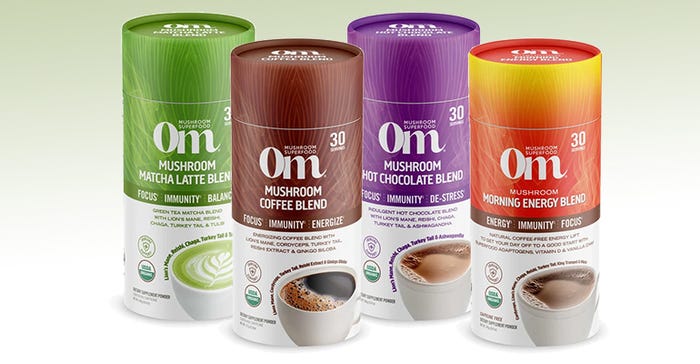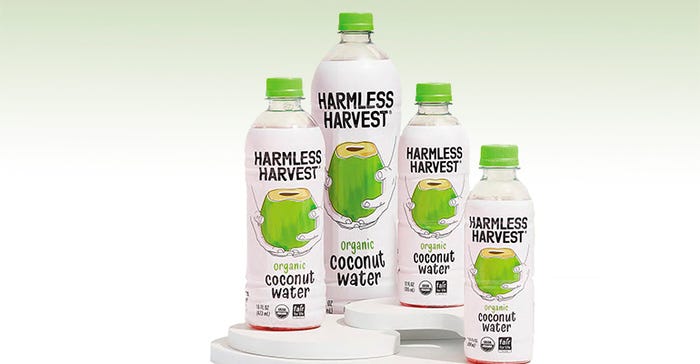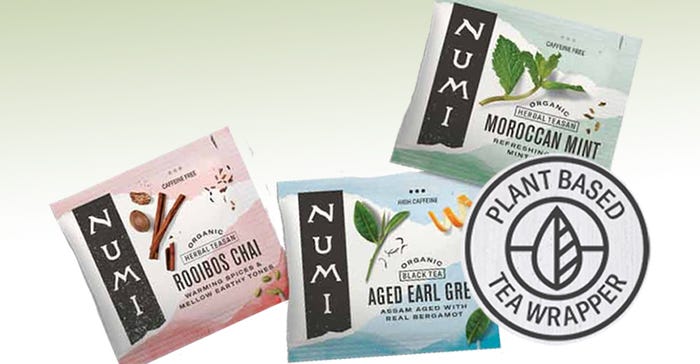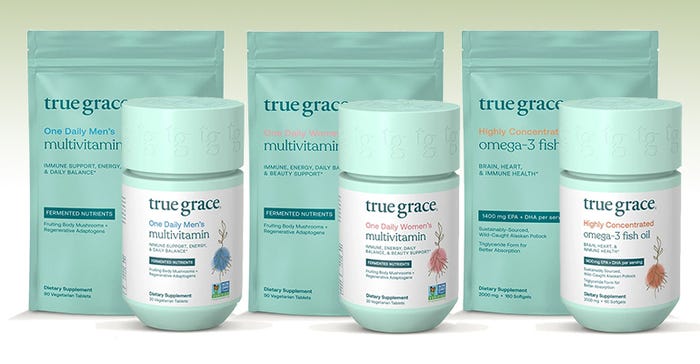End of the line: How brands are working to reduce packaging waste
As brands look at their carbon footprints, they often consider how to reduce the waste generated by their packaging. Find out what changes four companies—three in food and beverages; one in health and beauty—are making with the planet in mind.

Packaging and packaging waste were big topics at Natural Products Expo East in September. However, some companies have long been working on reducing their carbon footprints when it comes to packaging matters. Here, we look at the progress four companies are making so consumers leave less behind.

Om Mushroom Superfood
Om Mushroom Superfood, which makes functional mushroom foods, beverages and supplements, unveiled its new biodegradable packaging in September, putting its hot beverage blends in 30-serving canisters made from 100% paperboard. With a specialized water-based glue that breaks down easily, the canisters are both recyclable and biodegradable, says Adam Ziegelman, vice president of marketing. Inside the canister, the pouch that holds the mushroom beverage powder is made of 30% post-consumer recycled content but is not itself recyclable.
"Shelf life is critical for our product category and at this point, we are unable to use compostable or biodegradable liner," he adds.
In addition, the company's 10-serving box is made from 100% PCR paper, which can be recycled with other paper in consumers' usual recycling stream. The sachets are now made of paper, which Ziegelman says the company estimates will remove 36,000 pounds of virgin plastic from the waste stream.

Harmless Harvest
Harmless Harvest has set a goal of packaging its coconut water, drinkable yogurt, yogurt cups and coconut smoothies in 100% PET— Polyethylene terephthalate—plastic.
Already, the company is using 100% rPET bottles in Thailand, where its coconuts are sustainably grown and harvested.
The company is working with its U.S. manufacturers to have its product portfolio to 100% post-consumer recyclable or compostable material by 2025.

Numi tea
Numi, based in Oakland, California, has addressed a common waste problem for tea makers and drinkers: the wrapper that keeps the tea bags fresh. The new wrapper is made from renewable resources such as Forest Stewardship Council-certified paper, eucalyptus and non-GMO sugarcane—all of which help keep carbon in the ground.
Numi’s tea wrappers displace the consumption of 14.3 metric tons of virgin plastic per year. A light metallic layer provides a moisture barrier to keep the tea fresh.
These wrappers have a lower carbon footprint, perform better across all categories throughout their lifecycle, including energy resource use, pollution and ozone.
Working with the OSC Packaging Collaborative, Numi invested 10 years into developing the plant-based wrappers.

True Grace
Supplement maker True Grace not only makes it bottles from post-consumer recycled plastic, it makes it easy for consumers to refill rather than replace those containers.
Offering refill pouches made with renewable materials, True Grace uses 85% fewer virgin plastic bottles than if it made new bottles for those products.
Recycled plastic requires less energy to produce and releases less carbon dioxide than virgin plastic.
About the Author(s)
You May Also Like




